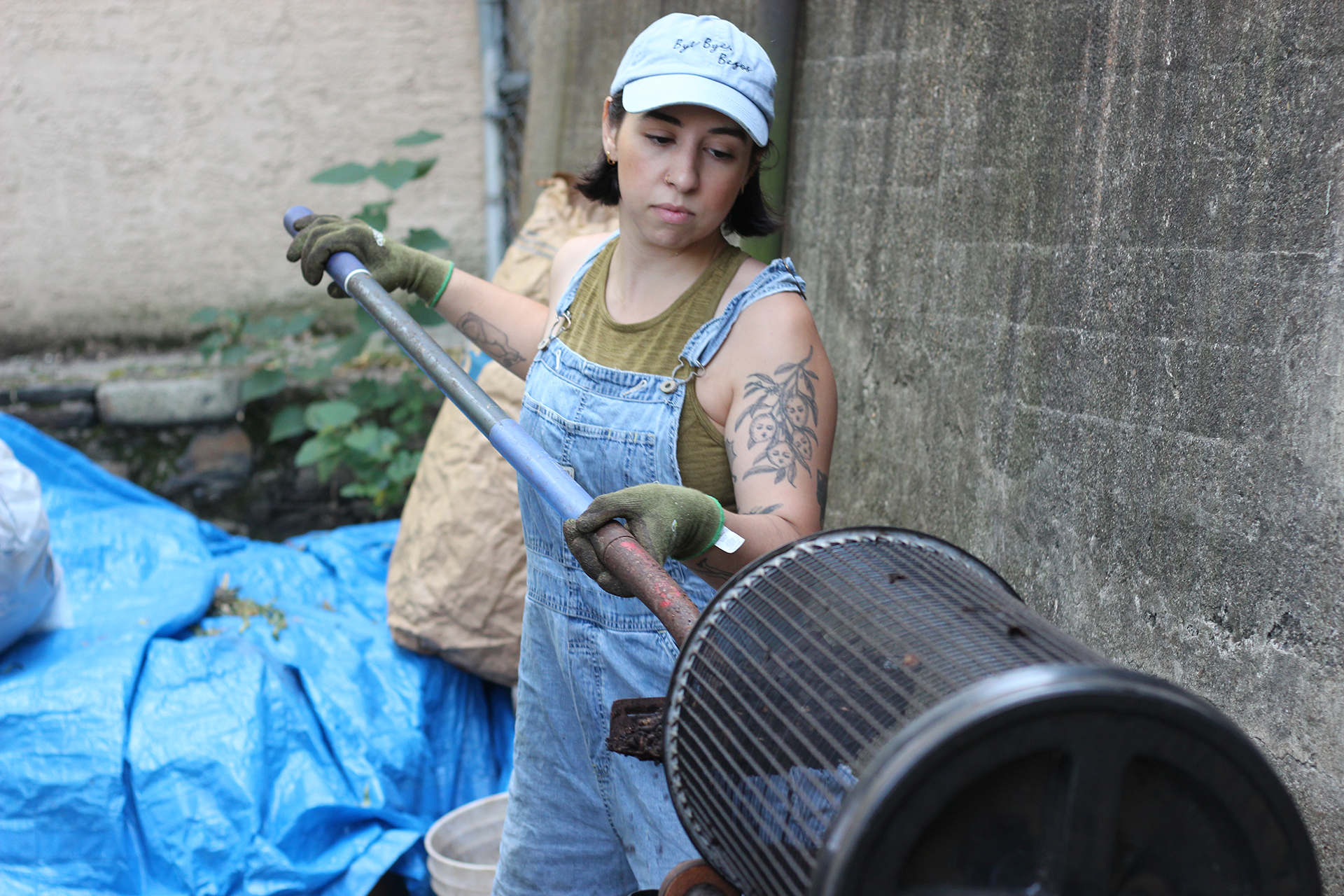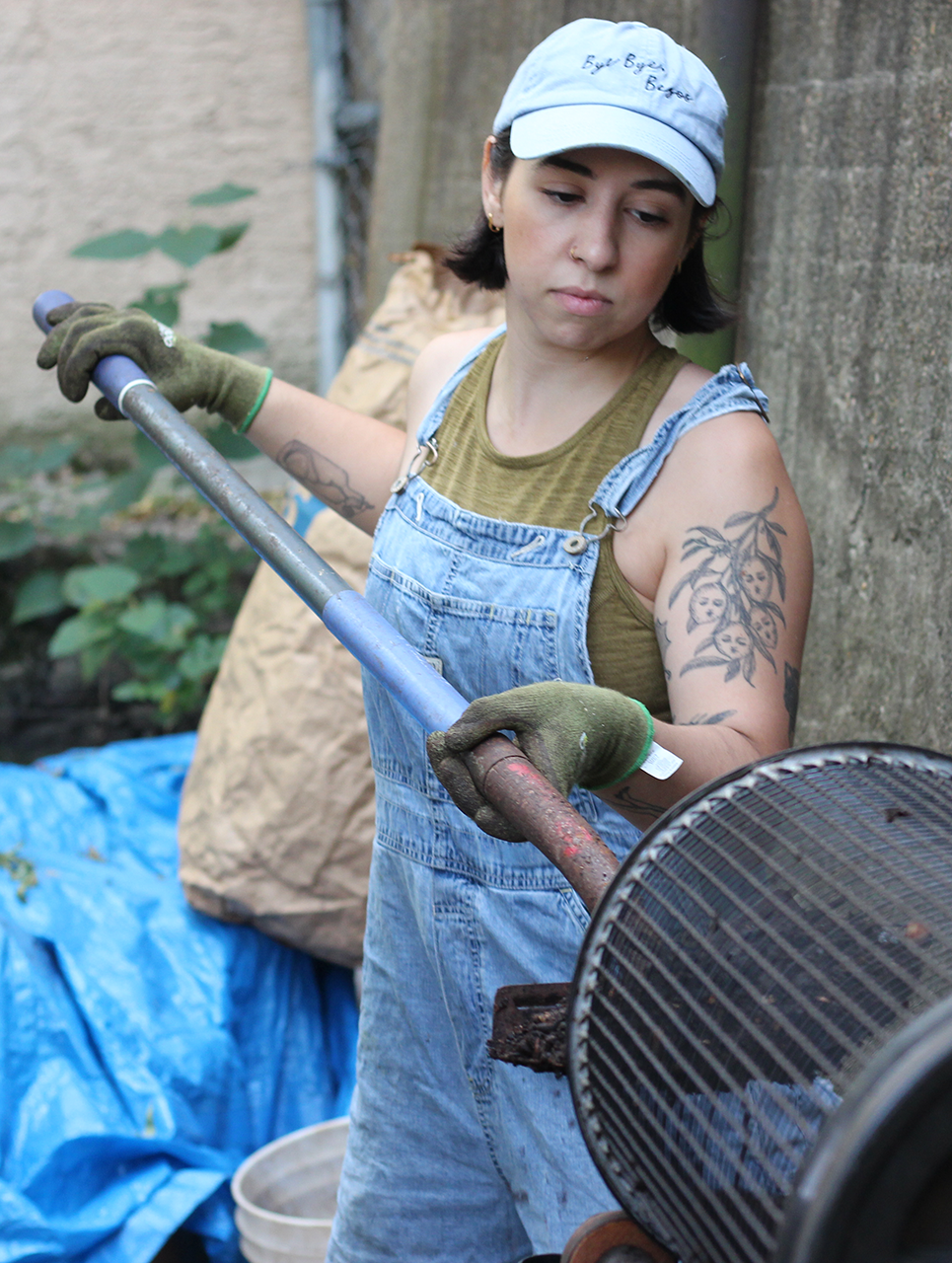I started Bennett Compost 16 years ago with the goal of making composting easy and accessible for Philadelphians. From the moment we started, people asked, “When do you think Philly will offer composting to every household like trash and recycling?” I used to say, “Ten years at the earliest.” Sixteen years later, my answer hasn’t changed.
It doesn’t have to be this way. Composting has been happening in West Coast cities like San Francisco and Seattle for 20 years, and East Coast cities like New York, Boston and Washington, D.C., have launched citywide drop-off programs, large-scale pilots or full-scale curbside programs in the last decade.
So, Philly, what gives?
Cities often start composting initiatives with public drop-off programs. These programs allow residents to bring food waste to a location and drop it off to be composted — at no cost. This allows cities to build awareness of and interest in composting without the complexities and expense of launching curbside pickup programs. Programs can be run by the City or by outside vendors. Regardless of who runs the drop-off programs, Philly would need to contract with an outside vendor to compost the material as it doesn’t have its own infrastructure to do so. Philadelphia currently has two drop-off sites open to the public. One, at Liberty Lands, is part of the Community Compost Network and is volunteer-run and open one hour per week for drop-offs. The other is operated by the New Kensington Community Development Corporation (in partnership with Bennett Compost) and is open for drop-off 72 hours per week.

So how could the City meaningfully expand its compost drop-off efforts? Philly operates six sanitation convenience centers that accept items best diverted from the regular trash stream (think paint, electronic waste, tires) and yard waste. The latter is composted at the Fairmount Park Organic Recycling Center. The City could add food waste collection containers to these centers and contract with outside vendors for collection and composting. These sites are staffed 60 hours per week (including Saturdays), providing residents flexible opportunities to drop off material. Temporary additional staffing would be needed for outreach and education for the first year — someone needs to drive home the message that if food waste is contaminated with non-compostable materials, the system will break down — but after that the programs could be run by existing City staff.
Philadelphia could also set up drop-off sites at City-operated facilities like rec centers and libraries. These sites are located throughout the city and, like the sanitation centers, could be operated without additional staffing after the first year. When, in 2021, WHYY mistakenly announced imminent implementation of such a system, the story generated great enthusiasm. Residents want this.
A Philadelphia drop-off program could collect as much as 2.5 million pounds of food waste annually at a cost of less than $500,000 per year. This is a fraction of what Philadelphia is currently spending for clean and green initiatives. Additionally, drop-off programs both provide an outlet for residents who want to compost but can’t afford private services and increase overall awareness of composting.
Philadelphia is falling behind on responsible disposal of food waste. Over the next few months, I will lay out additional ways to start catching up. Bennett Compost has been keeping food waste out of landfills for the last 16 years — 4,000,000 pounds last year alone, so we know what works. Let’s do this!
Tim Bennett is the founder of Bennett Compost. Alex Mulcahy, publisher of Grid, is also a partner.










What a wonderful idea! I agree, Philly could be doing so much more to be an environmentally conscientious city. I don’t understand why we don’t pay deposits on soda cans and bottles to encourage people to recycle them. Recycling batteries is not a thing either. I lived in upstate New York, and there were certain days you could leave batteries out for recycling., and some stores had recycling containers for them, too. What really bothers me, as well, are the thousands of plastic bags with store ads left in driveways every week. So many are not even picked up by homeowners, and are left to add to the trash on the street. It used to be you could opt out of having them delivered to you, now you can’t even do that. Why don’t they have people opt IN if they want these? In an age of digital ads and coupons, these should be phased out.
I have discovered that Staples will accept all kinds of batteries., electronic cords and devices, and even give you rewards in exchange for.